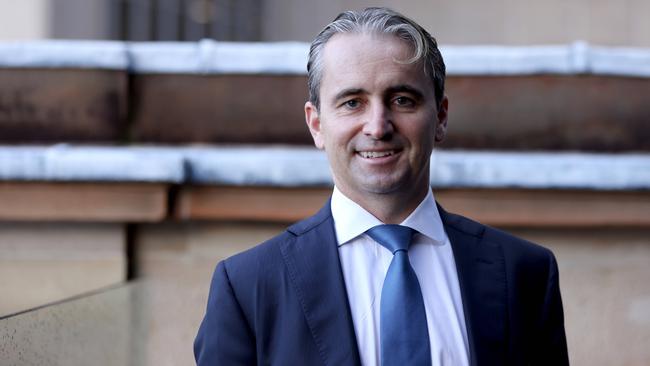Proxy houses back CBA pay, Lyn Cobley director appointment, despite tough questions
Influential proxy advisers are urging CBA investors to support pay and director resolutions at its AGM, but vote against motions put by activist group Market Forces.
Influential proxy advisory firms are urging Commonwealth Bank investors to support pay and director resolutions at its annual general meeting, but vote against motions put by activist group Market Forces.
Reports by Ownership Matters, Institutional Shareholder Services and CGI Glass Lewis sighted by The Weekend Australian all urged the bank’s investors to vote for its remuneration report but against resolutions by Market Forces.
ISS does highlight some concerns over the structure of CBA chief executive Matt Comyn’s pay and told investors it recommended a “qualified” vote in favour of his remuneration.
At the annual meeting on October 12, CBA shareholders are being asked to approve the granting of 19,032 restricted share units to Mr Comyn as long-term alignment pay, and a further 19,032 in long-term variable pay.
ISS noted concerns over the restricted units as a measure given some of their vesting was based on ongoing service over four and five years with “overlaying discretion” by the board.
Mr Comyn’s remuneration package also includes fixed pay of $2.5m, short-term variable pay of $2.3m, and he can earn a maximum long-term alignment amount of $1.75m and the same amount again for the long-term variable component. Ownership Matters and CGI urged investors to vote for Mr Comyn’s remuneration.
CBA shareholders will also vote on a proposed amendment to CBA’s constitution by Market Forces which, if approved by 75 per cent or more of votes cast, would result in a further motion regarding “climate risk safeguarding” being put to investors.
It calls for disclosure of information showing how CBA’s financing won’t be used for new or expanded fossil-fuel projects.

Ownership Matters’ report tells investors to vote against changes to the constitution given institutional shareholders already have the capacity to make their views known to bank management.
“It is unclear what additional benefit institutional shareholders would receive from having the explicit capacity to file non-binding resolutions, over and above shareholders’ existing rights, to elect or remove directors, propose candidates for election as directors and question the board,” it said.
ISS noted some shareholders may want to support the Market Forces-led resolution on the constitution as there was “limited downside” to investors being able to put forward not-binding resolutions. But its report urged investors to vote against the resolution saying CBA was “making changes” to its lending policies to reflect a transition to a lower-emission economy.
CBA on Thursday held a climate briefing that reiterated a 2030 target to cut its financed emissions in thermal coal mining to zero, and noted in other sectors the reduction would occur in a phased manner. The bank has set its first sector-level targets spanning power generation, upstream oil, upstream gas and thermal coal mining.
CBA said there were 800,000 of its customers, with $14bn in home loans, currently living in regions with a “high dependency” on coal mining.
Some investors have also been asking detailed questions of CBA chairman Paul O’Malley about the appointment of former Westpac and CBA executive Lyn Cobley to the board. Shareholders are being asked to approve her election at the AGM, despite her departure as head of Westpac’s institutional bank after a scandal involving millions of anti-money-laundering breaches.

The conduct resulted in Westpac paying a record $1.3bn penalty to regulator Austrac.
In a note to members, the Australian Shareholders’Association said Ms Cobley’s time at Westpac “was marred by the Austrac money-laundering allegations and associated heavy fines, and by the ASIC allegation into insider trading over an Ausgrid swap deal”.
“The ASA questioned the chairman on his rationale for Ms Cobley’s addition to the board and we are now satisfied that she will provide much needed Australian banking experience, given the loss of Shirish Apte.
“Her credit and balance sheet knowledge, and mortgage book experience is well regarded … The ASA also reviewed the reports of the Austrac and ASIC issues during her time at Westpac and is satisfied that the board has exercised appropriate due diligence.”
The Australian Council of Superannuation Investors is believed to be taking a similar view on the appointment of Ms Cobley as the ASA.
ACSI doesn’t identify any other major concerns with CBA’s meeting resolutions.








To join the conversation, please log in. Don't have an account? Register
Join the conversation, you are commenting as Logout